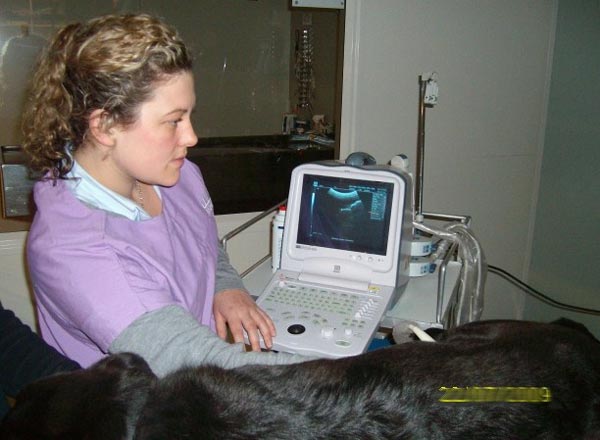Endocrinology
Identifying endocrine problems as early as possible is important in dogs and cats. These serious, potentially life-threatening conditions are much more manageable when caught early, allowing us to begin proper treatment.
The endocrine system is made up of a group of tissues (mostly glands) that release hormones into the bloodstream. These hormones regulate metabolism, growth, development, and reproduction and are dispersed to different areas of the body, depending on the hormone’s function. When a hormonal balance is disturbed (by a tumour or autoimmune disease, for instance), an endocrine disorder can develop. “Hyper” refers to an excess of hormone, and “hypo” refers to a deficiency in a hormone. Treatment varies depending on the disease.
There are several common endocrine disorders found in dogs and cats:
- Diabetes mellitus is caused by a deficiency in or resistance to the hormone insulin.
- Hypothyroidism, which is often diagnosed in dogs, indicates that the animal has low levels of thyroid hormone.
- Hyperthyroidism, which frequently affects cats, indicates that the animal has elevated levels of thyroid hormones.
- Addison’s disease (hypoadrenocorticism) and Cushing’s disease (hyperadrenocorticism) can also affect both species, although Cushing’s disease is rare in cats.
Contact us if your pet begins panting excessively, develops any skin issues (such as hair loss or dull coat), or shows any changes in behaviour, energy levels, appetite, weight, water consumption, or urination.
Cardiology
Although heart problems are found more often in older pets, these conditions can affect pets at any age. Heart disease is usually a life-threatening condition, but early diagnosis and appropriate therapy can extend your pet’s life. If caught soon enough, some forms of heart disease can be cured.
Heart disease can lead to congestive heart failure (CHF), which occurs when the heart can no longer pump blood effectively. If an animal is suffering from CHF, fluid usually accumulates in and around the lungs and sometimes in the abdomen. Congenital heart disease (animals born with a heart problem), valvular heart disease (abnormalities of the heart valves), arrhythmias (rhythm disturbances), and heartworm disease can all lead to CHF.
Call us if your pet starts breathing rapidly or coughing, loses his or her appetite, tires easily, seems weak, or has trouble exercising. We can discover many heart problems during a physical exam. Additional tests, such as an electrocardiogram (ECG), radiographs (x-rays), and ultrasounds, are usually needed to accurately identify the cause of the heart disease or failure.



